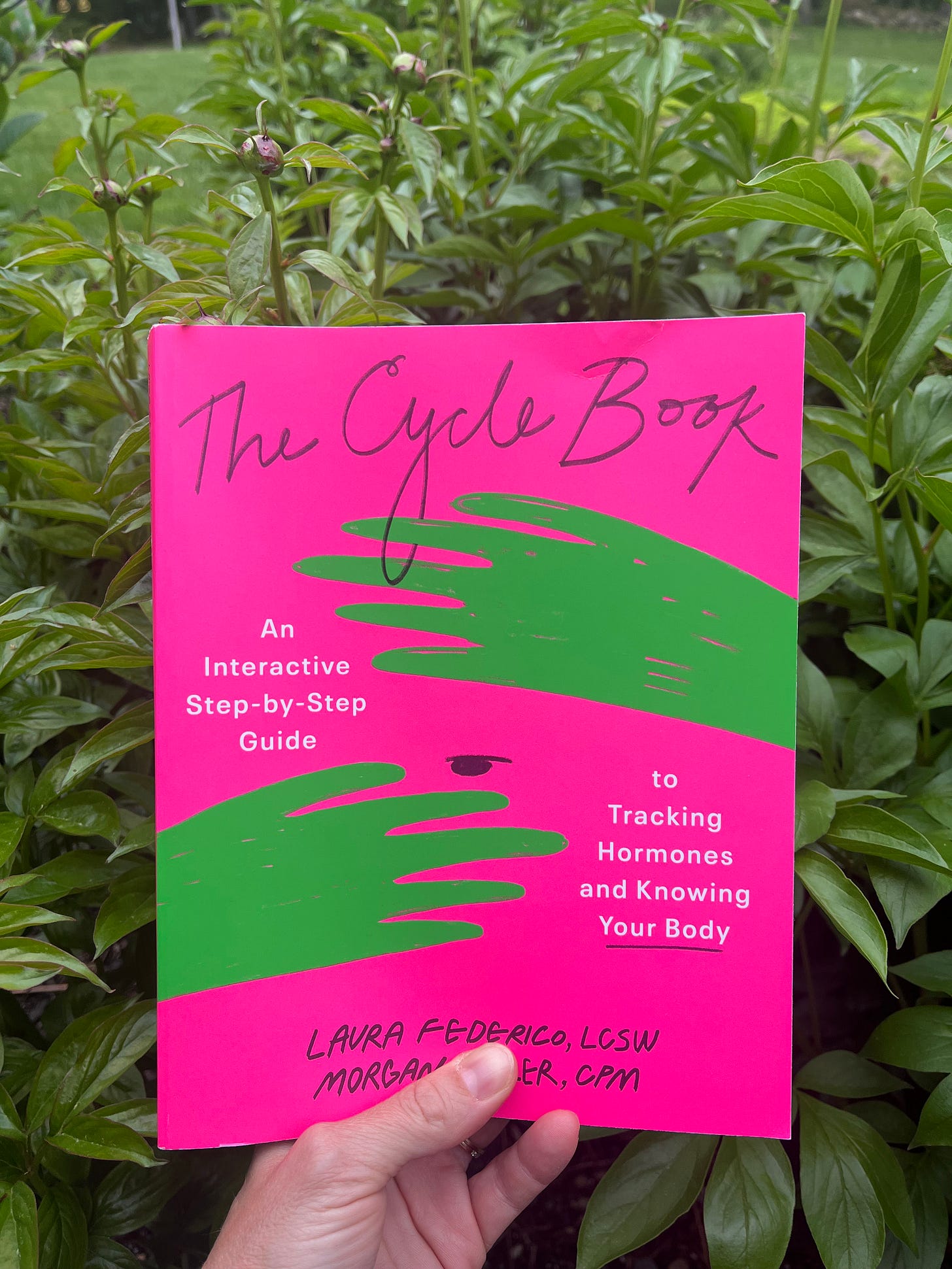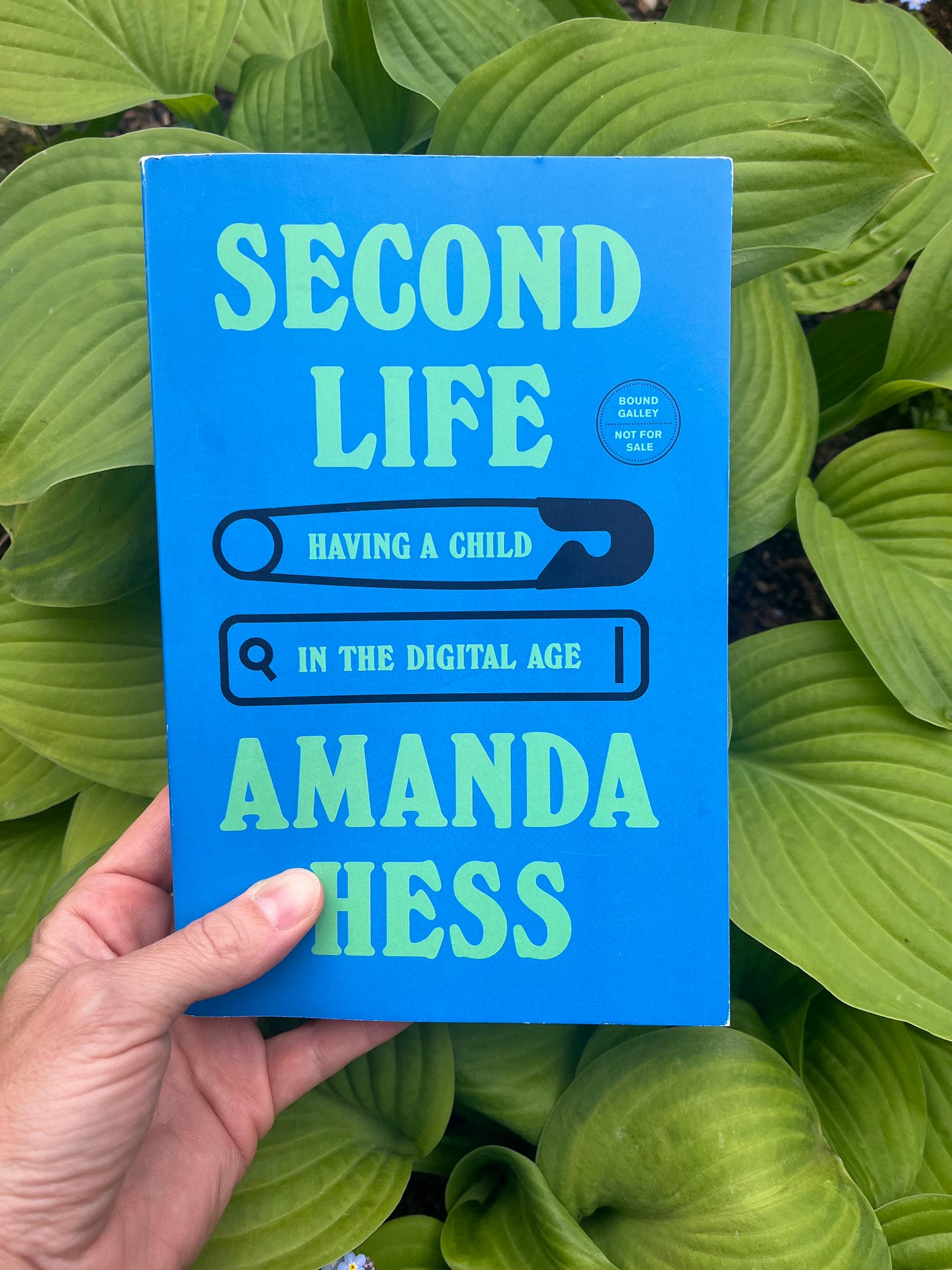I’ve partnered with my local bookstore, Water Street Books, to offer In Pursuit readers 10% off any of the following books (as well as books I feature in future pieces!) Water Street ships across the country from their online shop - just use the code COUNTERTOP at checkout for 10% off your order! They’re the best! 📚📚📚📚📚
My favorite kind of mom book is the mom book that says fuck off to the idea of the mom book. In the following new or forthcoming releases, you will find no whiteboards, no marriage-saving calendars, no protein-loading, no productivity hacks, and no rise and grind mama mantras. You will, in fact, find nary a tip or trick in these pages. This list comprises memoir, narrative nonfiction, women’s health self-help, and pop culture criticism, but every book on the list upends the notion that a mother’s most important job in the US is upholding and disseminating maternal ideals. These books defy the drive to optimize and insist instead upon the radical act of claiming identities unbound by the “successful” performance of gender.
The Cycle Book is unlike any book I’ve read about menstruation or the experience of inhabiting a body with a uterus. Unsatisfied with their educations (and information they absorbed through cultural osmosis) about the menstrual cycle, Laura Federico, LCSW, and Morgan Miller, CPM, have created an inclusive, introspective, information-rich book that feels like a totally non judgemental older sister. Interwoven with straightforward information about bodies and hormones are personal narratives from all sorts of people experiencing all sorts of contexts. The book also includes journal prompts, and eye-opening self-checklists and tracking tools. This is the OPPOSITE of like, whiteboard optimization though, and Federico and Miller continuously stress that you can take what serves you within the book, and leave the rest. I really appreciated the expansiveness of the lens they used to examine the menstrual cycle, and left my reading with a newfound understanding and curiosity about my own body.
When we are taught about menstruation, it’s within a heteronormative context of having a baby. It’s called the reproductive system, and the exploration of human biology often doesn’t go much further than that. When we are taught about pregnancy, we learn about ovulation. Outside school, mainstream dialogue about the cycle is all about “biohacking” or “balancing” or “modifying” your hormones.
To support and encourage the awareness of our bodies all the time, not just when, or if, we are thinking about fertility, we like to use a definition of menstruation that doesn’t focus on menstruation at all. To aid a deeper understanding of our bodies, we get curious about what the body is communicating instead of trying to “hack” it.
One of the most maddening things to me as a new mom was the veritable smorgasbord of infantilizing phrases the world used to describe my various brands of intense psychic pain. Are you experiencing full body existential anxiety? Baby blues! Are you so sleep deprived you can’t remember your own name? Mommy brain! Are you craving a few hours of time spent with adults who knew you before you became “mama?” Mom’s night out! And do you feel complicated and gnarly upswings and downswings of guilt? Mom guilt! Skewering the concept of “mom” as a pejorative AND the untenable pressure placed on mothers in white supremacist capitalism, Saumya Dave has written a biting novel about a magical pill that eradicates mothers’ guilt (this book is definitely friends with The Substance!), but really, keeps them numb to their internal lives and the oppression making those lives so difficult.
Maya puts her phone away and presses her black heels into the floor. To her surprise, all she feels is curiosity about the situation with her parents. Clear, direct curiosity. Nothing else. No pull to call her parents and mediate their latest argument. No pang of regret for not being able to go to the motel right now. Instead, she’s all logic and focus. Conviction and action.
Damn. The pill is more powerful than she even thought if it can dampen new-mother guilt and founder guilt and daughter-of-immigrants guilt. The rest of the day passes by in a blur of difficult conversations, tissue-box nudges, and well wishes for the future.
Later that afternoon, when she’s on the subway back home, she waits to feel the heaviness of the day.
But it never comes.
I wrote about Amanda Hess’s excavation of the free birthing Instagram economy in this piece, but Hess’s Second Life is so much more than that. Recounting the experience of being pregnant (for the first time) with a baby she discovers will be born with a genetic condition, Beckwith-Wiedemann syndrome, Hess explores how technology (ovulation apps, pregnancy fruit comparisons, mom forums, and of course, everything a new “mama” could ever buy under the sun) mediates modern motherhood. It’s easy to become inured to the various apps and platforms and shoppable sites making up the experience of modern motherhood, but Hess does a excellent job highlighting how a pregnancy app, for example, is subtly (?) telling mothers we should be thinking about our pregnancy all the time. Second Life upends the notion of a “good mom” as defined by tech, social media performance, the incessant drive to track maternal "achievements," and relatively recently normalized cultural expectations. I loved it.
I had once imagined that maternity clothing brands sold super-stretchy pants and weirdly long shirts, but now I understood that they sold a resolution to the identity crisis of motherhood. One of Hatch’s taglines was Still you, just pregnant. Storq put it this way: Feel like yourself again, only more comfortable. Never before had aspirational fashion brands tried to sell me such a meager vision for my future self. Buy this dress and nothing will change for you, they seemed to say. Buy this dress and you will not disappear into motherhood, never to be heard from again! Which is how I knew that the old me was really, truly gone.
If you feel complicated about any facet of motherhood, chances are, Ruthie Ackerman has your back. The Mother Code traces Ackerman’s ambivalence about having a child through analysis of Ackerman’s mother, grandmother, and great grandmother. As she tries to understand what motherhood means for her, Ackerman asks the big questions. Who is supposed to be a mother? What does a good mother look like? How do genetics inform the mother-child bond? What does wanting a child even mean? Ackerman has a vulnerable, generous voice, and this book is the ultimate validation for any mom who has ever felt as though she were coloring outside the lines. In any way.
Maybe if Clementine shared my DNA I wouldn’t have felt like I had something to prove. I would have known deep down inside that I was her mother and that would have been that. Or maybe this is what the system does to us: makes mothers feel inadequate no matter what we do. We’re cold and rejecting, or we’re hovering helicopters. We work too much or not enough. We’re a biological mom, but not a genetic mom.
“If it wasn’t about your DNA, you’d feel unworthy about something else,” Rob told me back then. “Maybe you’re just obsessed with the DNA because it’s the easy thing to point your finger at. But the more you focus on DNA and wonder if you’re connected enough to Clementine, the more you suck the joy out of your time with her and the more disconnected you feel.”
“You could be right,” I said, but how would I ever know?
Author of the book I Had A Miscarriage, Jessica Zucker PhD, is back with another book about tearing down cultural mandates to embody life according to someone else’s (often arbitrary! Often misogynistic!) rules. Grounding the book with her clinical experience, Zucker explores how social mores about grief, bodies, sex, trauma, and identity have impacted women’s lives and senses of self. She offers alternative pathways to creating your own benchmarks and carving out an identity unhampered by the crushing weight of societal expectations to grin and bear it.
Pain is pain. Suffering is suffering. Grief is grief. Too often, the nuance of perception and individual differences are lost in conversations about grief, creating the sense that our own losses do not “measure up,” that we should be better able to cope. The culture of silence and stigma continues. So does the harm it causes. “Give sorrow words,” Shakespear wrote in his masterpiece Macbeth. “The grief that does not speak whispers the o’er-fraught heart and bids it break.”
I read Chloe Caldwell’s Trying in one rapt sitting. I feel real hesitancy to even try to adequately describe Trying because boiling it down to anything definitive feels antithetical to the book itself. Caldwell’s prose is so spare, so merciless, and you can feel Caldwell’s curiosity and unwillingness to accept easy truths in every line. What starts out as a book about trying to get pregnant becomes a book about a marriage imploding which becomes a book about reclaimimg a life. It’s funny, smart, and defies easy categorization, and this excerpt made me GUFFAW and say fuck yes. See my prior interview with Chloe here!
I stroll into a gift store, only to be assaulted with mom phrases. The necklaces read:
MAMA
WORLD’S OKAYEST MAMA
C-SECTION
MAMA BEAR
MAMA-TO-BE
My favorite is the martyrish tote bag: NOTHING IN THIS BAG BELONGS TO ME. MOM LIFE.
Then put something of yours in the goddamn bag. Throw a Chapstick in there, a water bottle, a pen. There you go, now something in there belongs to you.
RELATED READING 👇
Quick, get your Mom Bag!
This utter beaut of an ad was forwarded to me by an In Pursuit reader, something I highly recommend and encourage. Truly, nothing makes me happier than shitty ads attempting to sell mothers stuff they usually don’t need predicated on flattened mommy stereotypes.











*fills entire cart*
Omg I feel so “in the know”! I just started reading The Guilt Trip because I saw it in a book store a few weeks ago and the way I was immediately drawn to it like there were hidden magnets pulling me is wild. When I picked it up and read the inside jacket, I was like yes. All the yes. Whoever designed that cover understands how to attract the right reader.